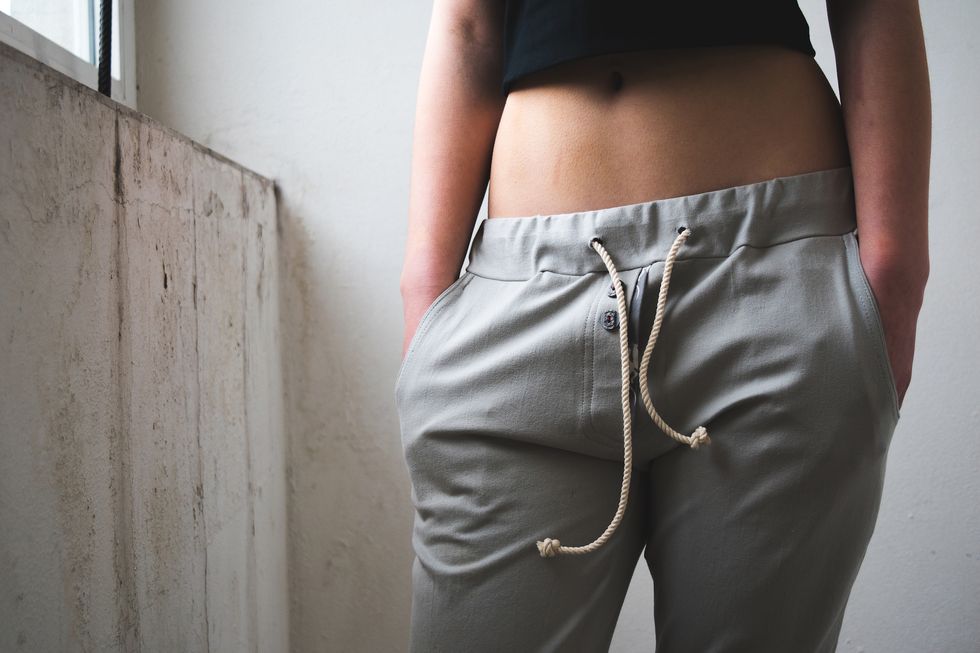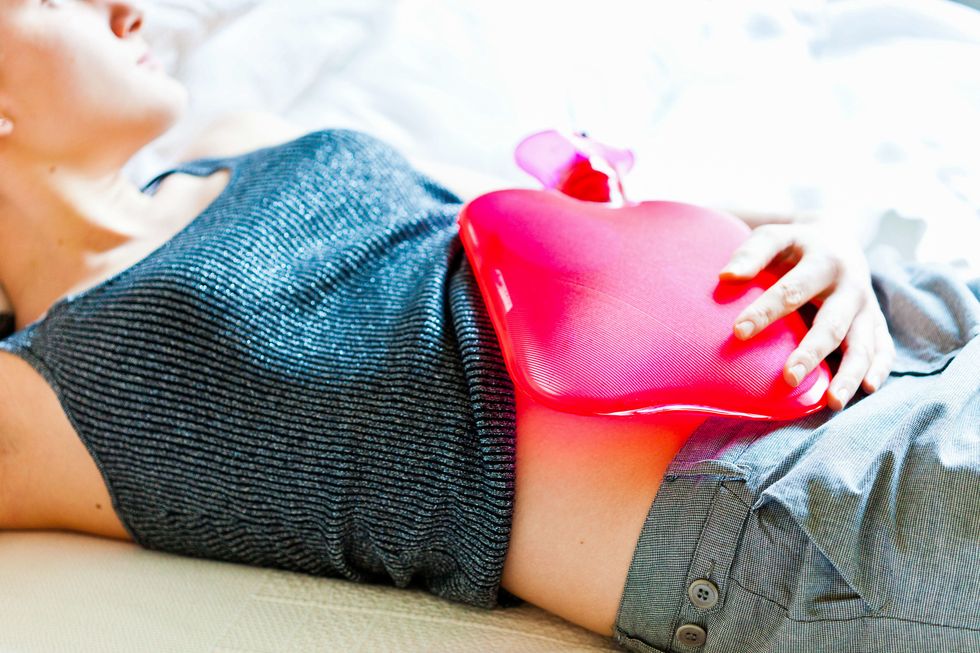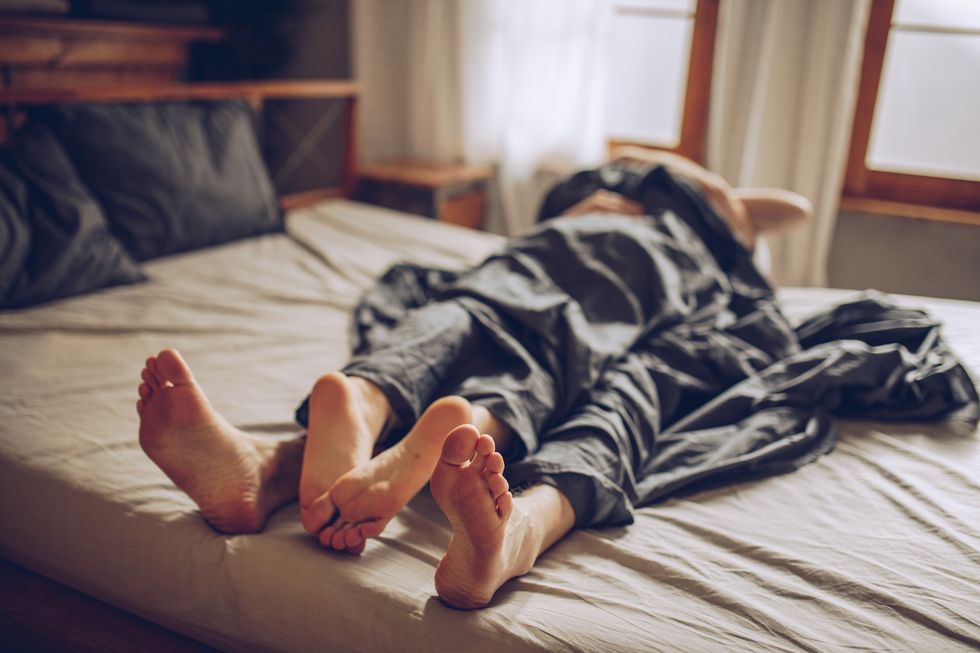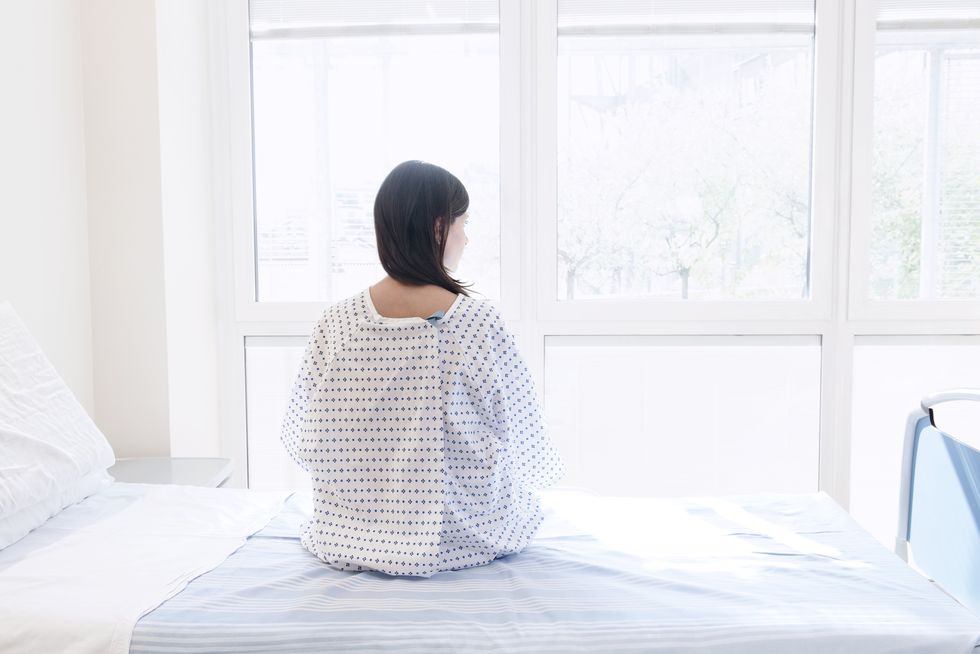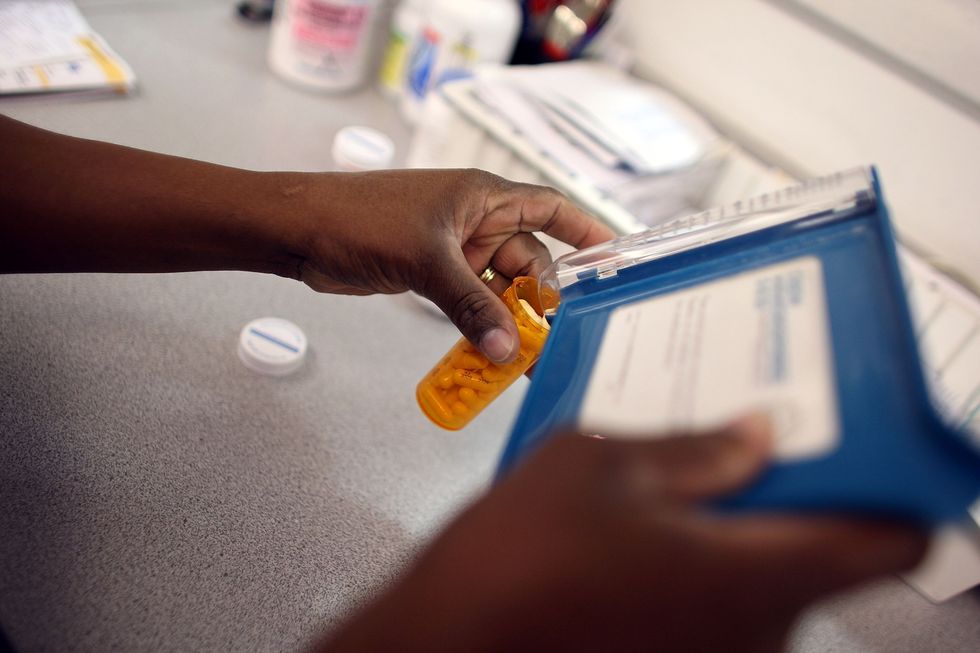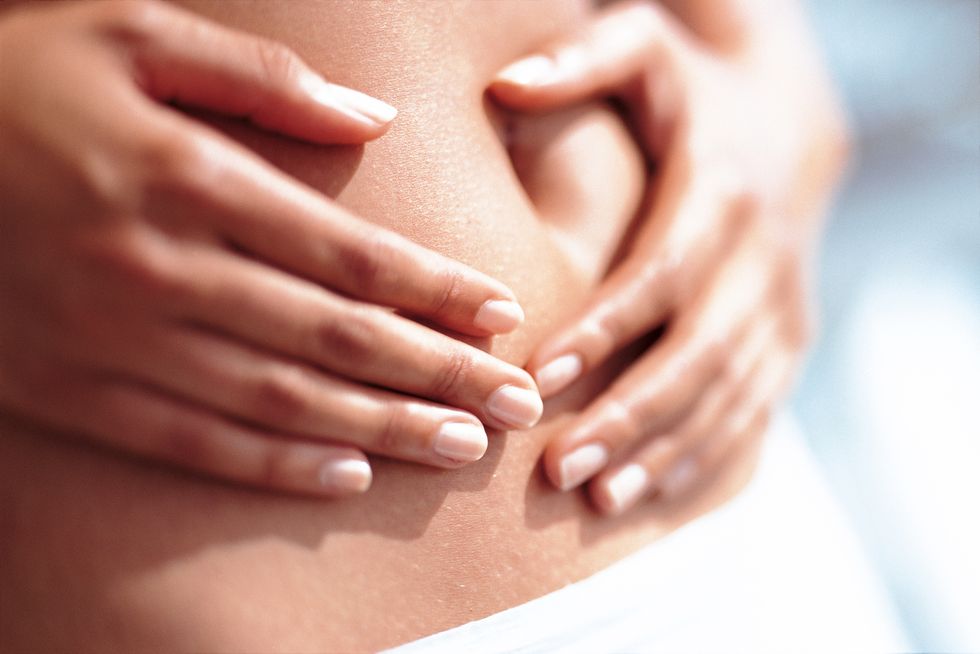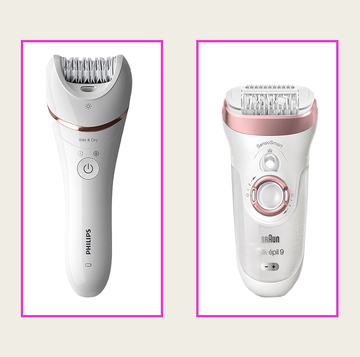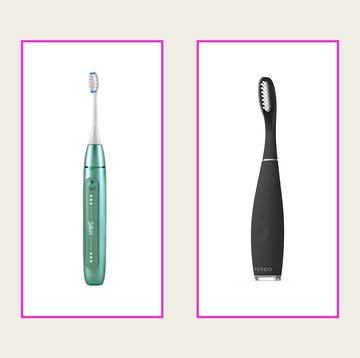Whether it's the dull ache from a heavy period or the uncomfortable sensation of bloating that has us wanting to crawl into the foetal position, unfortunately for many women, lower abdominal pain is a feeling never too far away.
In the majority of cases, it's commonly brought on by menstruation, a diet of too many pulses and beans (resulting in constipation), or annoying urinary tract infections (UTIs), and can be cured with a couple of paracetamol tablets, a long sit on the loo or prescriptive antibiotics from a medical professional.
However, sometimes it's difficult to diagnose the exact location, cause and cure for lower abdominal pain, when there's so many reasons as to why it could be happening.
As a result, we've spoken to the UK's top medical professionals specialising in gastroenterology, urology and sexual health to find out how to distinguish the causes of lower abdominal pain, indications you might require further medical assistance and how to treat the problem.
Here's everything you need to know about lower abdominal pain:
Abdominal pain: Digestive system
According to statistics from the NHS, irritable bowel syndrome (IBS) is thought to affect up to 'one in five people' at some point in their life and commonly shows signs for people between the ages 20-30.
Surprisingly, around twice as many women are affected as men, which might explain why women are more likely to be heard complaining of stomach cramps and bloating.
However, pain in the abdomen isn't always related to IBS, as Dr John O'Malley, ex-secretary of the Primary Care Society for Gastroenterology explains.
Causes of lower abdominal pain
'The main cause for abdominal pain is commonly IBS, resulting in stomach cramps, bloating, constipation and diarrhoea,' says Dr O'Malley.
'However, not everything that sounds like IBS is IBS. What's increasingly being diagnosed nowadays is inflammatory bowel disease (IBD), due to improved awareness and methods to detect it, which can result in symptoms such as bloody diarrhoea.
'There's also irritable bowel syndrome with constipation (IBS-C) and irritable bowel syndrome (IBS-M) which can see symptoms of both diarrhoea and constipation.
Where you'd feel digestive pain
'Of course, there isn't a prescriptive route to the cause of lower abdominal pain but you can locate your bowel by placing your hands above your right and left hip. the bowel can be found in line anywhere from the navel down to the genitals.
'Pain on the left might indicate large bowel problems while pain on the right could suggest issues in or around the intestine.'
What the pain commonly feels like
Dr O'Malley continues, saying: 'Pain often ranges from a mild ache to excruciating, depending on the problem.
'Bloating – when spasm causes air in the bowel to expand – normally causes mild pain, while intense pain could be a result of colonic spasm (spontaneous spasms of the colon) and even appendicitis when acute (inflamed).'
Julie Thompson, specialist gastroenterology dietitian and information manager at Guts UK adds that abdominal pain with Inflammatory bowel disease (IBD) is mostly severe.
'The symptoms are diarrhoea, blood in stools (particularly with ulcerative colitis), weight loss and some people have night time sweating, and on occasion bloating and constipation - depending on the type of IBD diagnosed - although not all these might apply to an individual,' she notes.
'The pain with IBS can range from mild to severe and the symptoms are abdominal pain, bloating, diarrhoea and/or constipation. It is not always easy to distinguish between IBD and IBS without testing.'
Would cutting our certain food types help?
Changing the diet can be helpful for symptoms of IBS, according to Thompson.
'Simple changes can be effective and this should be tried before an elimination diet is attempted (not everyone needs an elimination diet),' she notes.
As for IBD, the dietician says that changing your diet should not be attempted without the help of a registered dietitian. 'People will vary with what advice needs to be given depending on the stage of IBD and the type diagnosed,' she continues, stating 'standards state that IBD teams should include a dietitian because of this fact'.
Dr O'Malley concurs. 'There's an increasing number of people who come into a surgery admitting they've cut out certain foods from their diet to test whether they're allergic,' he says.
'For example, if you have coeliac disease (a sensitivity to gluten), you might have difficulty absorbing calcium, which could result in osteoporosis, so it's important to cut out food as and when necessary, with medical assistance.'
How to solve the problem
'A doctor would first ask for a patient's medical history, touching on the likes of past digestive issues, a travel history (as some problems might arrive from post-infective bowel syndrome), family illnesses, sex, drugs and smoking,' says Dr O'Malley.
'An examination would confirm or help build on knowledge learned from listening to a patient's medical history. If there were concerns of a potential inflammation in the bowel, various blood, urinal and vaginal samples might be taken, as well as a test for coeliac disease.'
'The most important thing to remember is no one should have to put up with pain. If you have any symptoms that concern you, seek medical advice and understand what is happening in your body,' he adds.
According to Thompson, those suffering from IBS might want to consider using a low FODMAP diet, after consulting a medical professional.
'The diet excludes sources of fermentable carbohydrates (part of the fibre and sugar content of foods) that travel through to the bowel and via microbial fermentation cause symptoms of IBS,' she says, adding that the eating plan helps around seven out of 10 people.
Abdominal pain: Reproductive organs
Period pain (when the muscular wall of the womb tightens) is a common occurrence in menstruating women from the puberty to menopause, but can sometimes be triggered by an underlying medical condition, often known as secondary dysmenorrhoea, resulting from conditions such as endometriosis, fibroids and pelvic inflammatory disease.
Therefore, it's important to monitor any changes in period pain or your periods that might indicate something more serious might be happening internally.
Professor Claudia Estcourt from the British Association of Sexual Health and HIV (BASHH) says: 'The key thing when assessing pain related to the reproductive system – be it in the ovaries, uterus or fallopian tubes – is to keep tabs on any changes.'
For example, if you've never had period pain and suddenly find your periods are uncomfortable or result in uncharacteristic pain over several months or cycles, it's a good idea to take action.'
Dr Leila Frodsham, consultant gynaecologist and spokesperson for the Royal College of Obstetricians and Gynaecologists (RCOG) adds: ‘If it is manageable pain, it can be helpful to log instances in a book, noting timing (particularly relationship to menstrual cycle for gynaecological causes), severity and changes in circumstance that may have contributed. This could aid quicker diagnosis.’
She notes that what’s normal for one woman might not be for another, so it’s helpful to understand your body and when something is wrong or, equally, going well.
‘Any pain that isn't relieved by simple painkillers and interferes with a woman’s ability to go about her day-to-day life, like having to take days off school or work, should be investigated by a healthcare professional,’ she says.
Causes of lower abdominal pain
'Depending on the age of the woman, we might need to exclude pregnancy by doing a pregnancy test. Pregnancy itself shouldn't be painful, but we would need to think about a range of different causes if the woman was pregnant and sometimes treat her with different drugs which wouldn't harm her pregnancy,’ says Dr Estcourt.
After that a doctor's next action would be to establish if the pain is coming from the gut, the reproductive tract or the kidneys and bladder.
Symptoms to monitor include:
- Whether you're feeling sick, losing weight, experiencing constipation and diarrhoea pain during menstruation that isn't normal for you
- Bleeding in between, after or during sex
- Significantly shorter or longer periods
- Changes in vaginal discharge
- Pain with sex, often experienced as 'deep pain' which if severe would mean that penetrative sex is just too uncomfortable or painful
- Sharp pain in the ovaries
While pain is common during a women’s periods, other conditions can cause pain and need to be monitored.
Dr Frodsham adds: ‘If abdominal pain is new, significant and/or combined with changes to menstrual patterns, pressure, changes in bladder and/or bowel habits and migrates to the back and legs, it should be checked by a doctor.’
Pain during or after sexual intercourse
'If a woman reveals she's never had painful vaginal intercourse but is now experiencing discomfort, she might have an infection in the uterus or fallopian tubes,' says Estcourt.
Pain during sexual intercourse can occur when the uterus or ovaries are inflamed, and cause pain when the penis hits the cervix.
If a woman has pain during or after sex or experiences bleeding, they should visit their GP.
What the pain commonly feels like
Pinpointing the origin of pain might be good indication of cause but, not always.
‘In terms of the reproductive organs, if a woman was experiencing dull, sharp or constant pain due to sex or a change in (worse) period pain, it would be a red flag,’ says Dr Estcourt.
Dr Frodshom explains that menstrual-related pains will ‘usually feel like an ache, which may come in waves across the back and down the legs and occur when bleeding starts’. ‘Pain before the period associated with pain during sex or having the bowels opened might be indicative of endometriosis,’ she says.
‘Sharp, stabbing pain on one side or the other or pain that worsens with movement may indicate something more serious like an ovarian cyst or ectopic pregnancy. It is important that women seek advice if they are experiencing new, acute pain.’
'It's always worth having an STI screen to rule out any infections that might give rise – if left untreated – to pelvic inflammatory disease, ectopic pregnancies and long term lower abdominal pain. It's easy and quick to do this in a sexual health clinic,’ adds Estcourt.
How to solve the problem
Estcourt notes: 'When a woman visits a doctor, she should expect to be asked questions to pinpoint possible causes for the pain including questions about her reproductive, urinary, digestive systems. The doctor might also check her mood is ok as some psychological problems can manifest themselves in a physical symptom of lower abdominal pain in some women.
'Once pregnancy is ruled out, we might ask to examine the woman's abdomen which would involve feeling a woman's stomach to locate any tenderness, swelling or pain. A doctor would press on the lower stomach with their fingers to feel if added pressure illicits pain or if there were any abnormal lumps and bumps.
'In some cases, we would ask to do a gentle internal examination with a speculum to look inside the vaginal and at the cervix and to take STI samples and a bimanual examination which involves a doctor inserting her forefinger and middle finger into the vagina (with gloves on) and then pressing the top of the pelvis with their other hand to palpate the organs.
'This gently compresses the organs between top and bottom hands so it's easier to find a potential cause of pain.'
Depending on the results from STI, urine samples and examinations, it might then be necessary to investigate further and this might include ultrasound scans,' she notes.
Abdominal pain: Urinary issues
Anyone who has endured the pain from cystitis (caused by a bacterial infection) will be well-accustomed to the agonising, burning sensation when passing water or the urgency of needing the toilet.
Unfortunately, cystitis is more common in women than men for several reasons, one being the fact our the urethra is much shorter and closer to the back passage.
Causes of lower abdominal pain
Miss Mary Garthwaite, Consultant Urological Surgeon at James Cook University Hospital, Middlesbrough, reveals the most common causes of risk factors for cystitis in women include sexual activity, hormonal changes during pregnancy and secondary to the menopause, bowel issues resulting in either such as constipation and or diarrhoea and being generally run down (lowered immune system).
'However, some women seem more prone to UTIs than we can currently explain, without any obvious risk factors,' she adds.
'When bacteria builds up in the urine bladder or urethra, it causes the bladder to become inflamed and more sensitive, resulting in the symptoms of cystitis.
'Bladder pain syndrome – a chronic bladder condition – is rare but can happen in the absence of infection for some patients and leave patients with a chronically painful sensitive water pipe urethra and bladder.
'It's often difficult to diagnose the pain in the bladder pain syndrome so it's usually a matter of first excluding what it isn't.'
Where you'd feel urinary pain
'Cystitis-related pain can be found very low down in the middle of the tummy, below the public bone. To locate the bladder area, press on the middle of your bikini line.
'If it's a severe infection you might get loin pain which can go off to one side at and round to your the lower back. You may feel as if you kidneys are aching.'
Should you go to the doctors with a UTI?
If you're systematically systemically well (not feverish, eating and drinking normally) but have irritating bladder symptoms you think might be due to infection, first increase the amount of fluid you're drinking. By doing so, you're diluting the urine which can help settle the pain and literally flush out the bugs trying to cling to the bladder wall.
'Taking some simple pain killers such as paracetamol might also help with discomfort. The pain should be monitored for 24 hours in order to see if it improves or worsens.
'If symptoms get worse over 24 hours, speak to a pharmacist. If but you're still systemically well, a pharmacist might recommend over the counter treatments which can be dissolved in water –therefore encouraging you to drink more – which can help settle symptoms by changing the acid balance of the urine.
'If you start to feel achey or fluey and the burning pain is becoming too much to cope with, book a doctor's appointment and be prepared to take a urine specimen along with you. You may need a short course of antibiotics'.
'You should also consult your doctor if you see bright red, visible blood in your urine. Bugs that cause cystitis sometimes cause the bladder lining to inflame and bleed (haemorrhagic cystitis) but it's important to inform your GP and ensure there isn't a more serious problem occurring'.
'A good rule of thumb is, if you have more than two separate urine infections within six months that really affect you, seek medical advice.'
Like this article? Sign up to our newsletter to get more articles like this delivered straight to your inbox.



